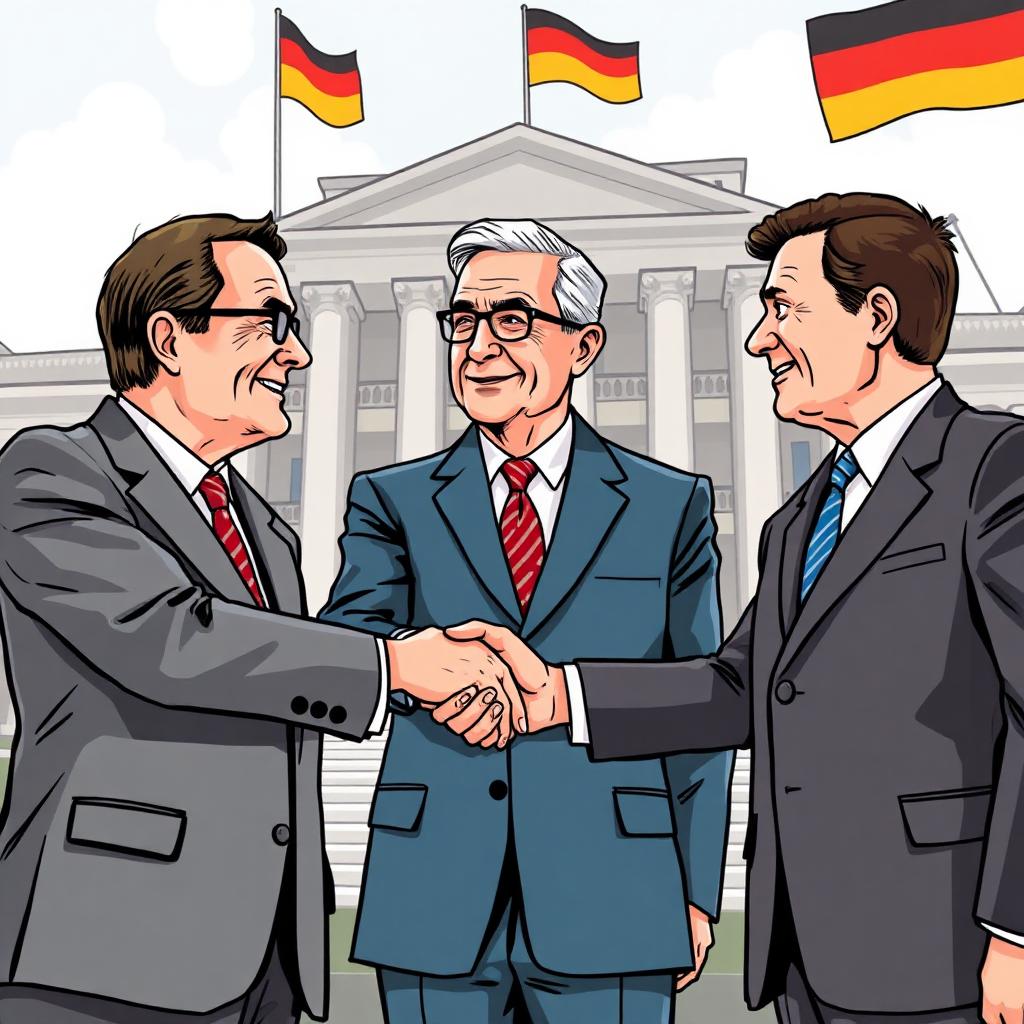
Vancouver, BC – Written Wednesday, April 9th, 2025 – Friedrich Merz, leader of the center-right Christian Democratic Union (CDU), has successfully negotiated a coalition government following Germany’s federal election on February 23, 2025. The CDU/CSU alliance has partnered with the center-left Social Democrats (SPD) to form a government, ending months of negotiations and signaling a shift in Germany’s political direction.
“Vor uns liegt ein starker Plan, mit dem wir unser Land gemeinsam wieder nach vorne bringen können” (“Ahead of us lies a strong plan with which we can move our country forward together”), Merz declared during the presentation of the coalition agreement in Berlin. He emphasized that “Deutschland bekommt eine handlungsfähige und eine handlungsstarke Regierung” (“Germany is getting a capable and strong government”) and is set to become Chancellor, leading the new administration.
Friedrich Merz managed to secure a landmark funding agreement aimed at overhauling the country’s defense systems and infrastructure. The deal arrived just ahead of a pivotal Bundestag vote on Tuesday, April 15, 2025. As Merz works to form a coalition government with the Social Democrats (SPD) by early May, he’s pushing to pass these reforms through the current parliament before March 25, when a newly empowered Alternative für Deutschland (AfD) and Left party could obstruct progress.
Following his February election win, Merz emphasized that reinforcing Europe’s stability was a top priority, especially in light of U.S. President Trump’s apparent disengagement from European affairs. After an intense 10-hour negotiation session with the Greens, Merz hailed the breakthrough as a turning point, declaring “Germany is back” and pledging that the country would play a key role in safeguarding peace and freedom across Europe.
The coalition agreement, titled “Responsibility for Germany”, is the product of weeks of intense negotiations and spans over 140 pages, outlining key policies on migration, economic reform, and defense.
Key Policy Shifts
- Migration: The coalition plans a “return offensive” to accelerate deportations of rejected asylum seekers while scaling back voluntary federal intake programs. The “Turbo-Einbürgerung” (fast-track naturalization) policy from the previous government will be abolished.
- Economy & Defense: The agreement includes measures to strengthen Germany’s economy and military readiness, aligning with broader European security concerns.
Ministerial Appointments
- SPD secures 7 ministries, including Finance and Defense.
- CDU takes 6 ministries, including the Foreign Ministry—marking the first time in nearly 60 years that the CDU holds this portfolio.
- CSU retains 3 ministries, most notably the Interior Ministry.
- A new Chief of Staff position (at federal minister rank) will support Merz in the Chancellor’s Office.
Political Landscape & Challenges
The 2025 election revealed a fragmented Bundestag, with gains for both the far-right Alternative für Deutschland (AfD) and the far-left Die Linke, challenging Germany’s traditional centrist politics. Merz’s coalition aims to counter this polarization by focusing on economic stability, security, and controlled immigration.
International Implications
As a key European power, Germany’s new government will influence EU policy, trade, and global diplomacy. Canada, a major trade partner, will likely monitor developments closely, particularly regarding economic cooperation and transatlantic relations. With Canada’s own federal election set for April 28, 2025, diplomatic engagements may shift depending on the outcome.
The formation of this coalition marks a new chapter in German politics, with Merz at the helm of a government determined to steer the country toward stability and renewed leadership in Europe.
#GermanyElection2025 #FriedrichMerz #CDUSPDCoalition #GermanPolitics #AfD #Bundestag #EuropeanNews








